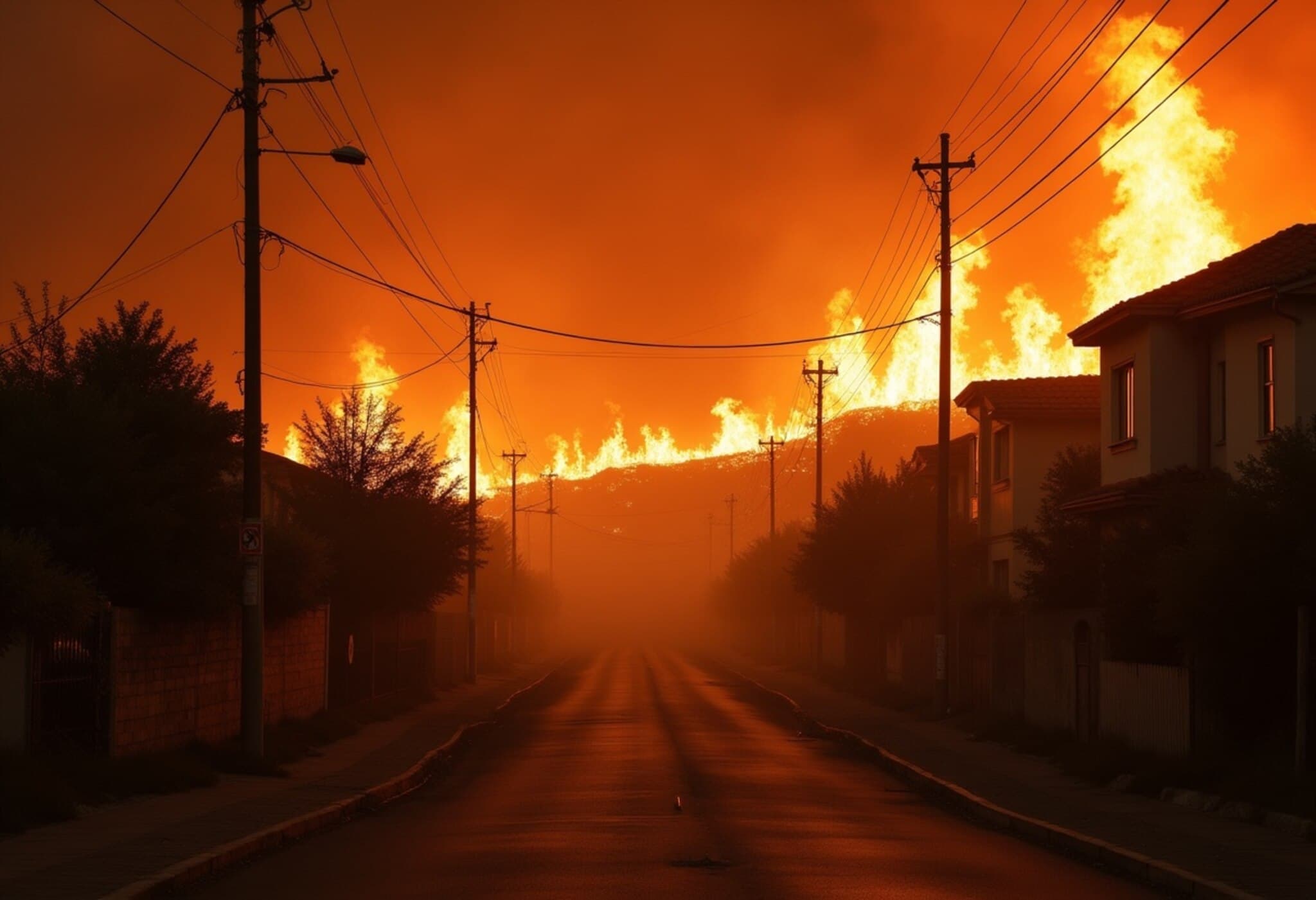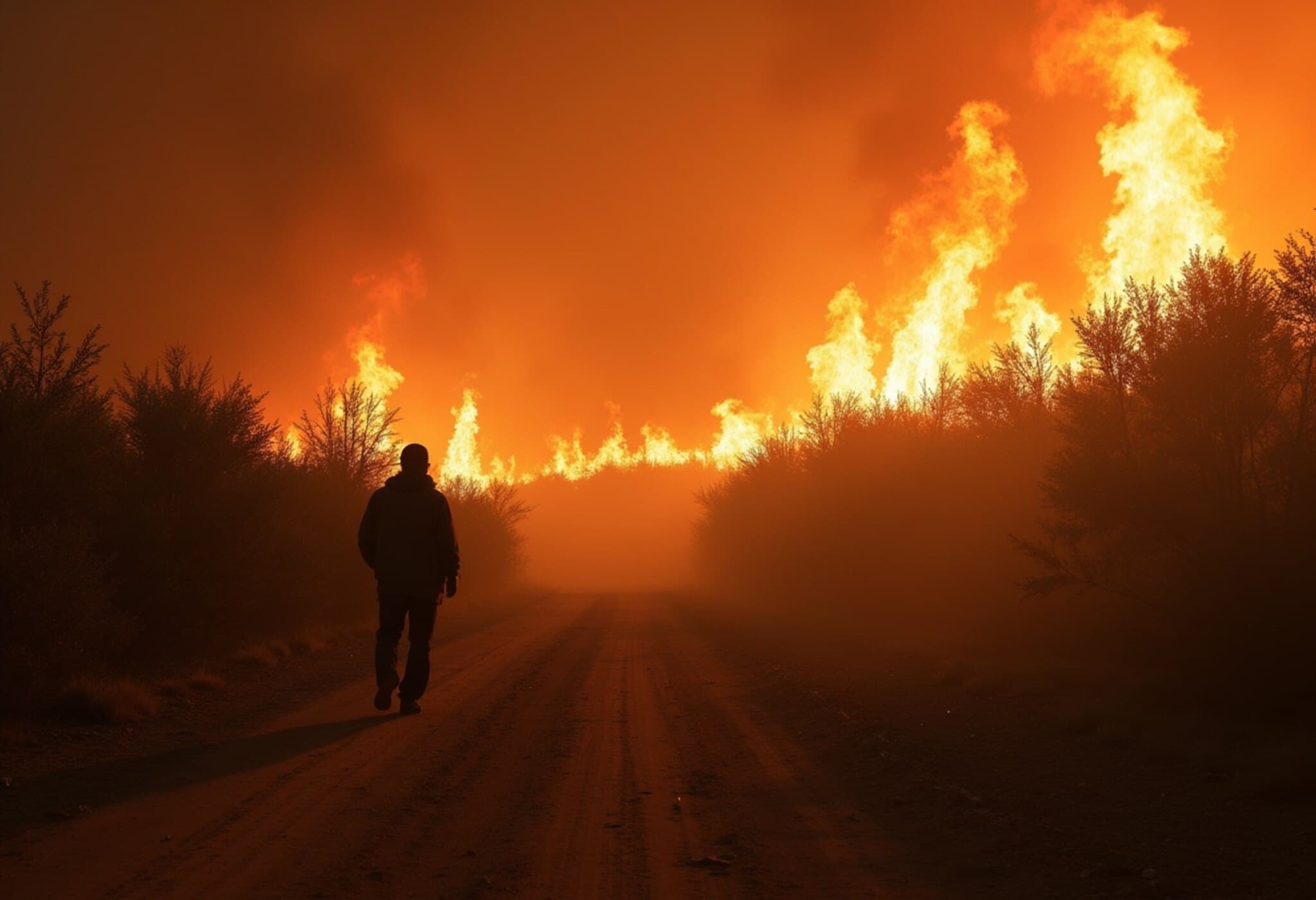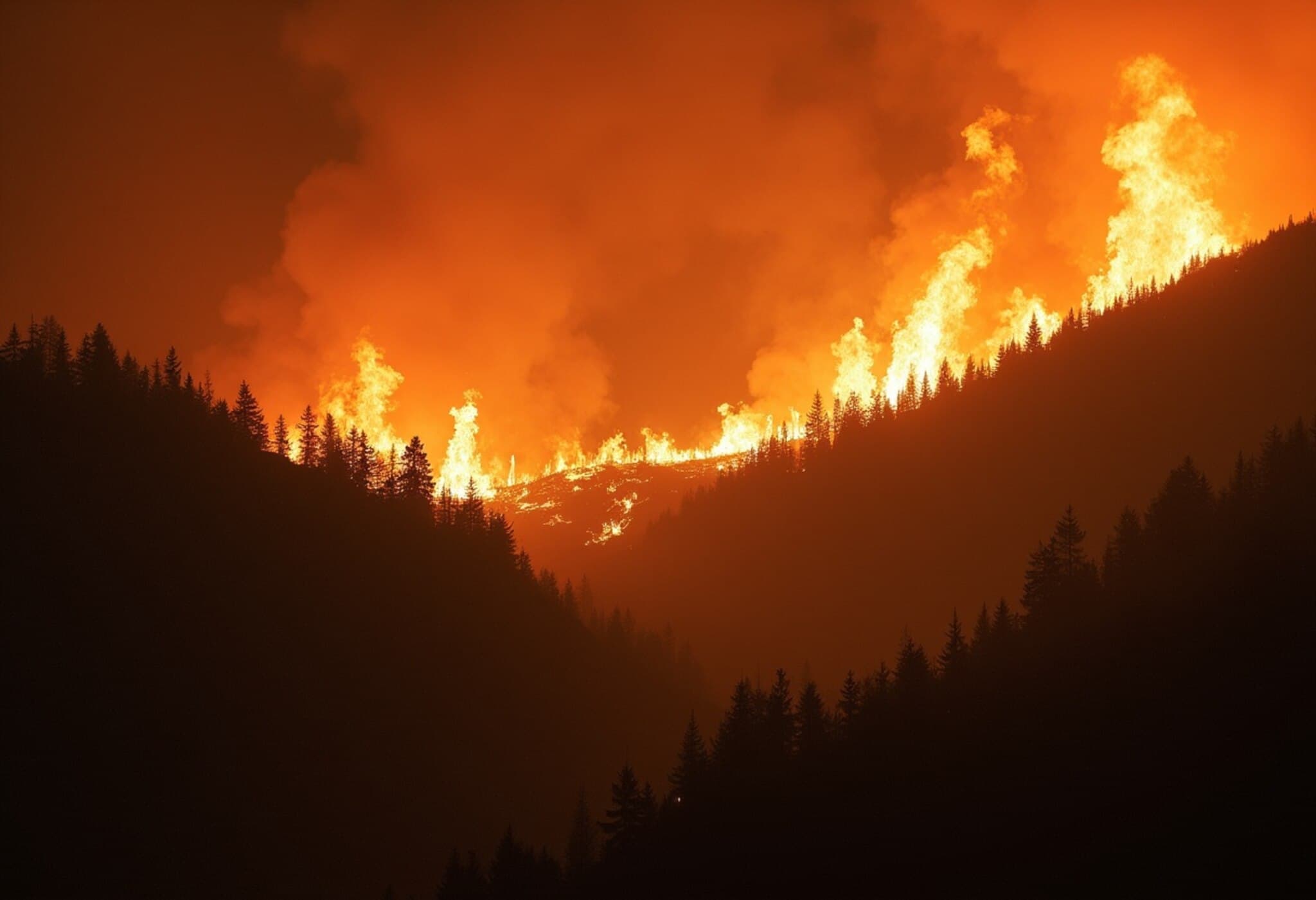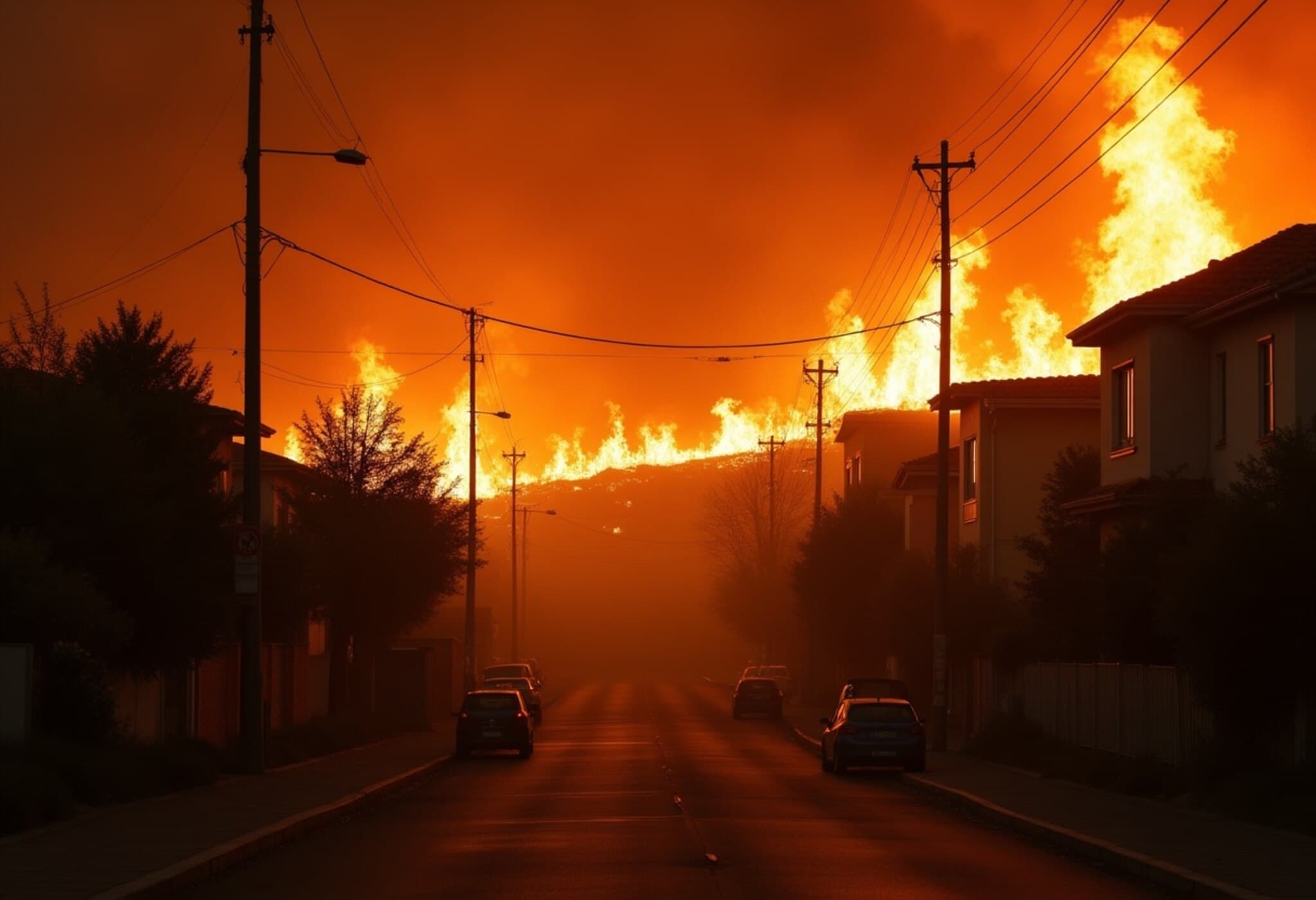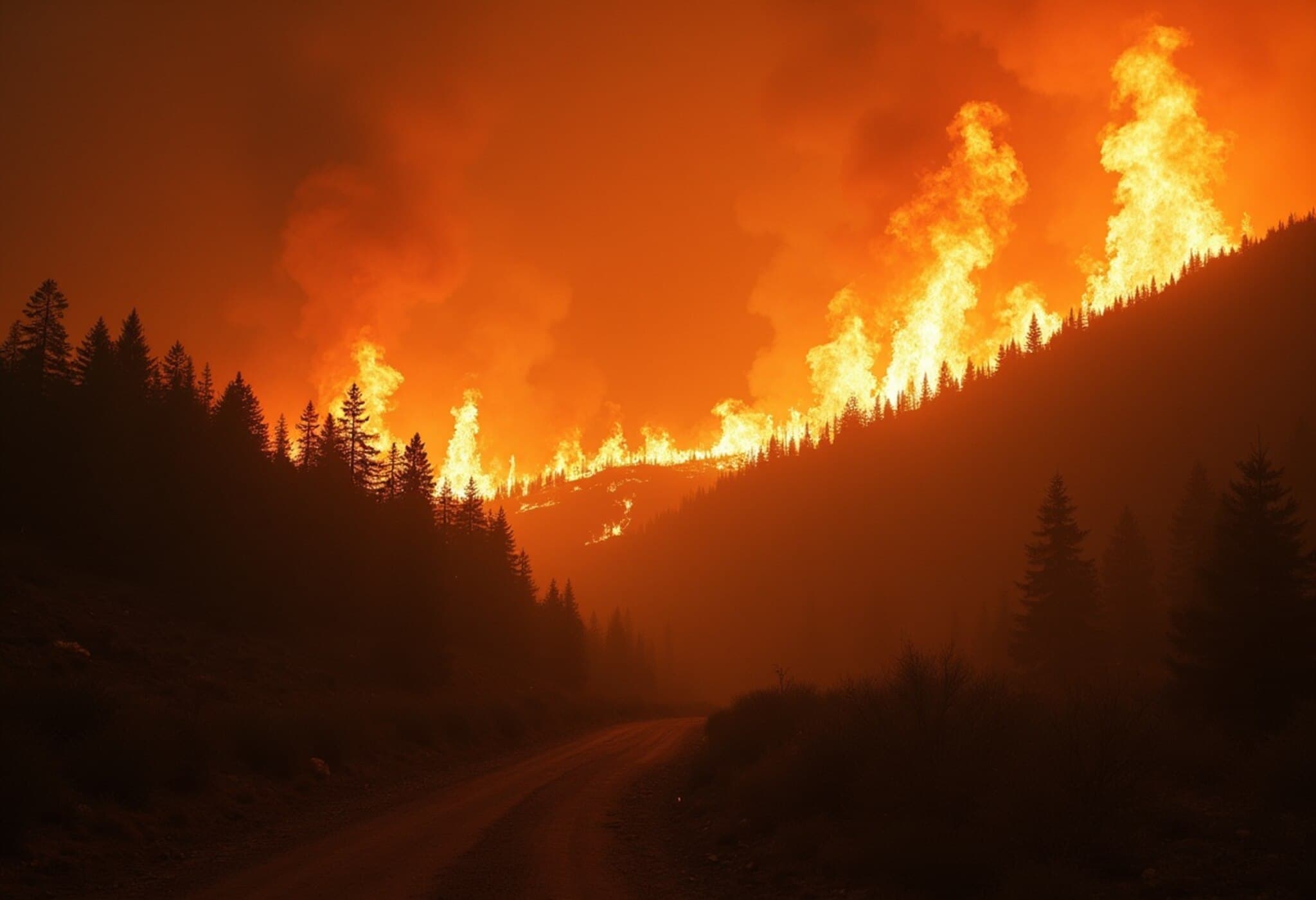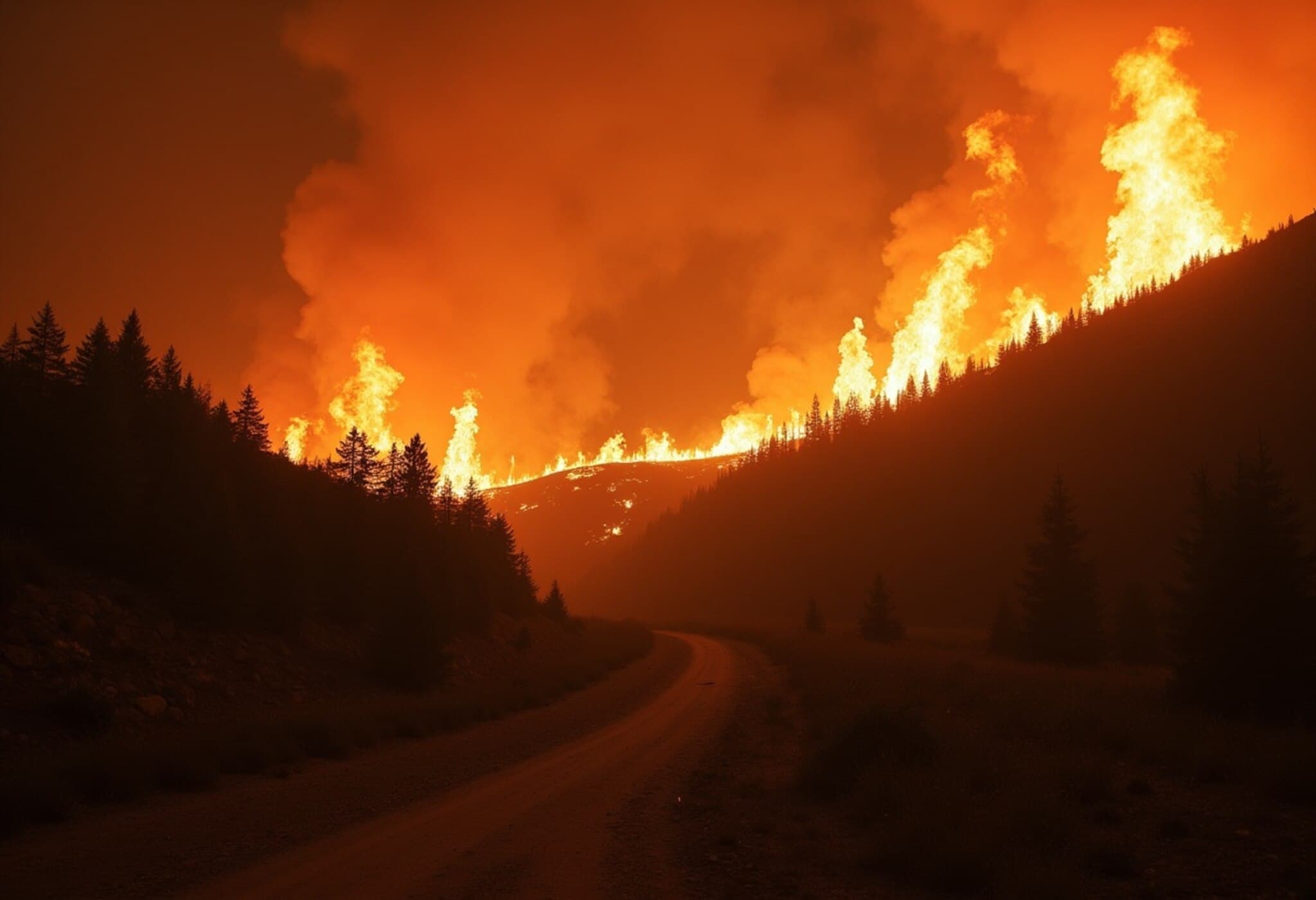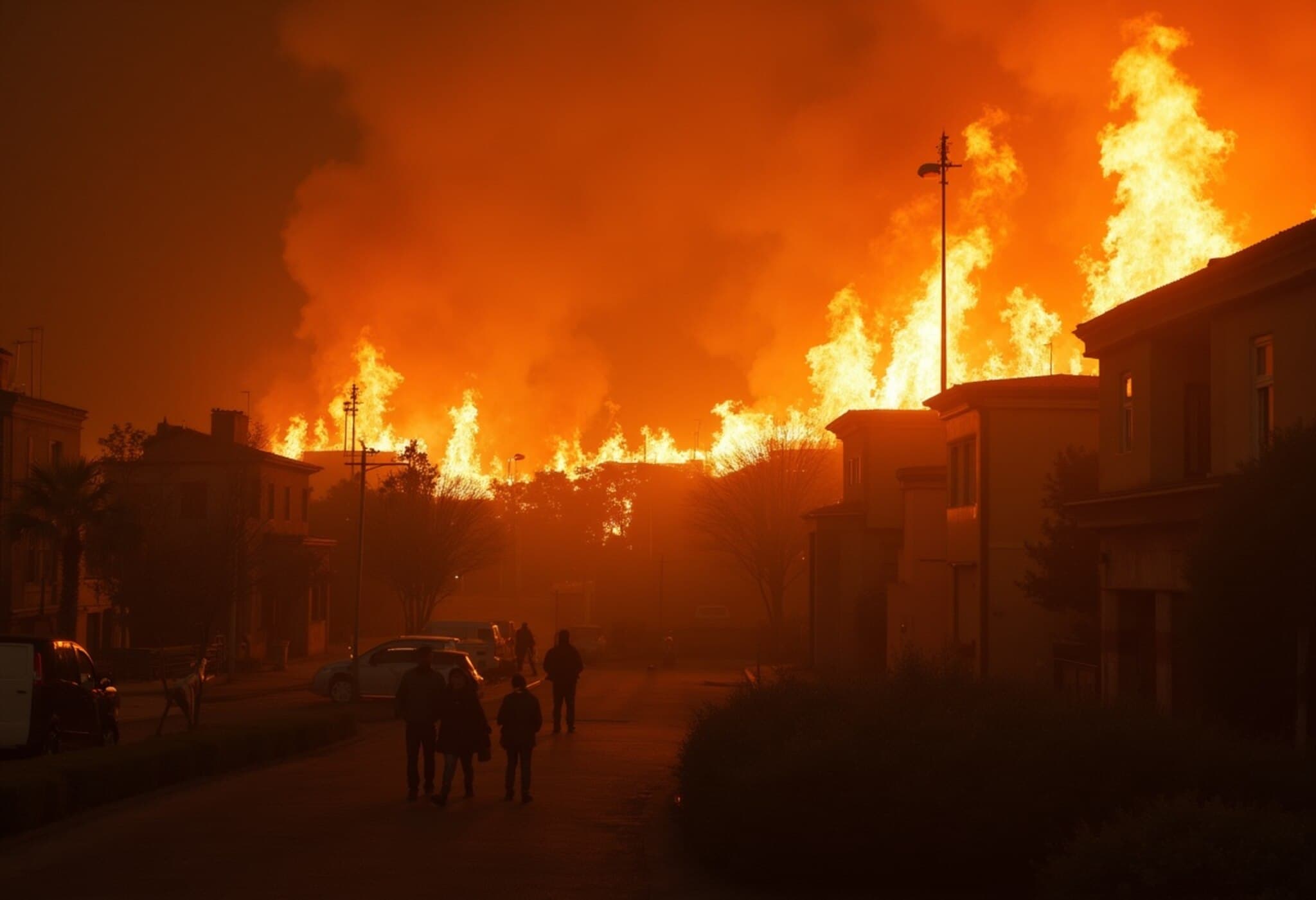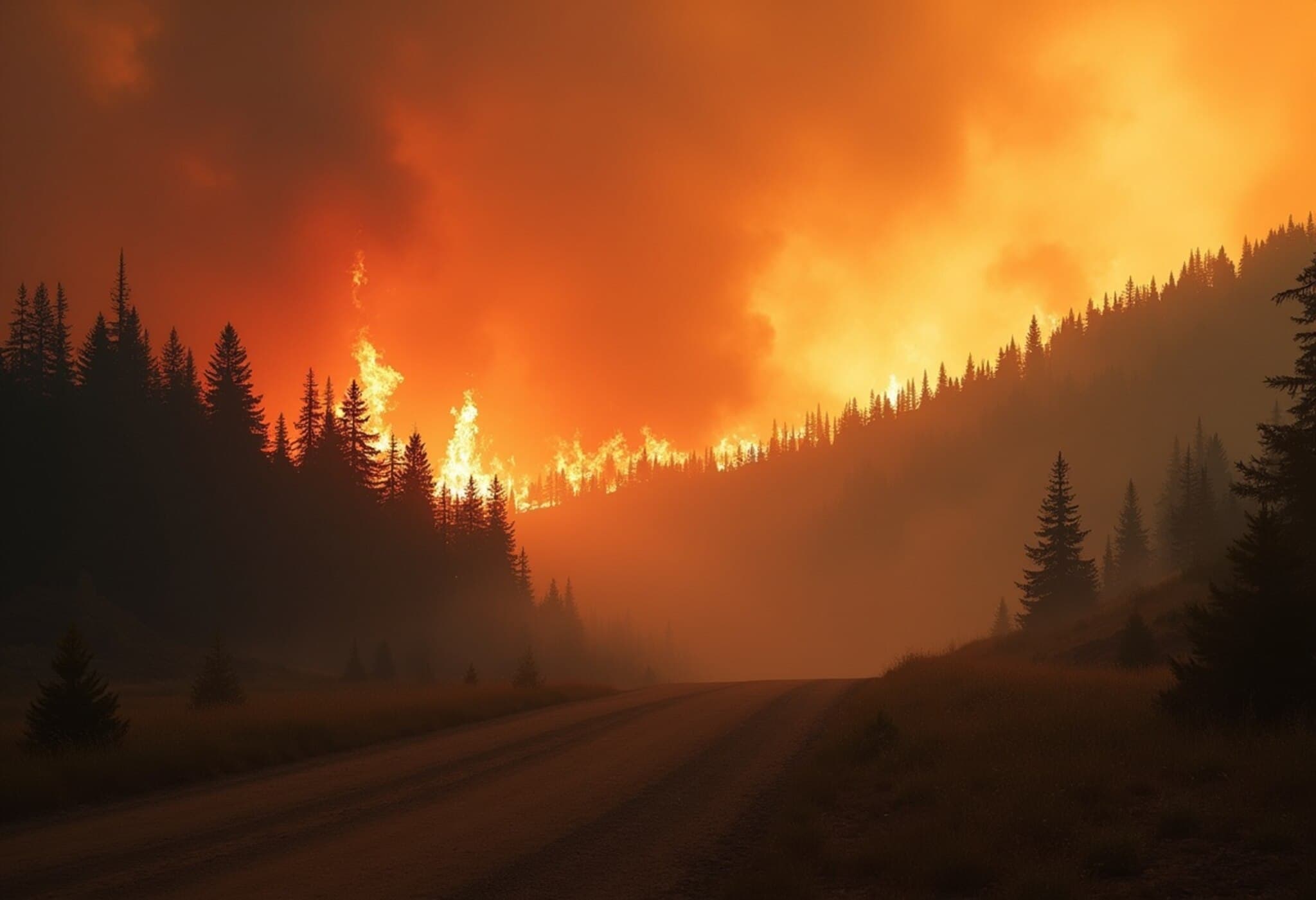Devastating Wildfires Tear Through Northern Athens Suburb
On a scorching summer day in late July 2025, a relentless wildfire broke out in Kryoneri, a northern suburb located about 20 kilometers northeast of Athens, Greece’s capital. The ferocity and speed of the blaze forced Greek authorities to issue mandatory evacuation orders, sending urgent SMS alerts to residents to flee to safer areas.
Vassilis Vathrakoyannis, spokesperson for the Greek fire service, described the scene during an official briefing: “The flames have consumed homes, and while we continue to battle the inferno, the most challenging phase lies ahead.” His stark warning underscores the escalating severity of wildfires amid a climate system rapidly veering towards extremes.
Emergency Response Efforts Underway
Efforts to contain the blaze have mobilized extensive resources including approximately 145 firefighters, 44 fire trucks, 10 firefighting planes, and 7 helicopters. Ground crews coordinate closely with aerial support to slow the fire’s advance through dense vegetation and residential zones.
Despite these measures, several residents—particularly elderly people frail from respiratory ailments—have required medical attention, with at least five individuals being treated by ambulances at the scene. The origin of the wildfire remains under investigation, raising critical questions about prevention and accountability in an era marked by frequent and ferocious blazes.
Climate Extremes Fueling Unprecedented Fire Activity
Experts highlight that weather conditions this season have been ideal fuel for wildfires. Temperatures soared beyond 38°C (100°F) combined with arid soils and strong winds create a perfect storm to accelerate flame spread. Vathrakoyannis emphasized the rapidity with which fires can grow under such conditions, saying, “Fires expand very quickly and become dangerous—these conditions will persist over the coming days.”
This wildfire in Kryoneri is not an isolated incident. Across Greece, over the past 24 hours, there have been reports of 52 separate wildfires erupting simultaneously, stretching firefighters and resources to their limits. Major blazes also rage on the island of Crete, the large island of Evia north of Athens, and Kythera off Crete’s northwest coast.
Regional and Global Context: Southern Europe Under Siege
The wildfire crisis unfolding in Greece resonates with a broader pattern of climate-fueled disasters gripping Southern Europe. Southern France’s Aude region also battles massive fires threatening towns and tourist hotspots. Recent wildfires there have scorched thousands of hectares, forcing evacuations and disrupting local economies heavily reliant on tourism.
These events bring into sharp focus the urgent need for European climate adaptation policies that go beyond firefighting logistics to include sustainable land management, enhanced early-warning systems, and climate-resilient infrastructure.
Expert Perspectives: What This Means for Greece and Beyond
From a policy standpoint, Greece’s wildfire emergency highlights the intersection of environmental vulnerability and national preparedness. As climate change intensifies, Mediterranean countries face shrinking windows for effective intervention.
Additionally, the health impacts on vulnerable populations, especially older adults and those with respiratory issues, underscore the human cost of delayed climate action. It raises pressing questions on preparedness of healthcare systems during environmental crises.
Economically, wildfires jeopardize tourism—a cornerstone of Greece’s economy—while destroying valuable forestry assets and private properties. Long-term recovery will demand concerted financial and policy support both locally and from the European Union.
Looking Ahead: Building Resilience
- Enhanced Cross-Border Cooperation: Sharing firefighting assets and intelligence across the EU can improve crisis response efficiency.
- Investment in Climate Adaptation: Proactive measures in forestry and urban planning can help mitigate future wildfire risks.
- Community Awareness and Preparedness: Strengthening evacuation protocols and public education can save lives.
- Research and Early Warning: Leveraging satellite data and AI to predict and monitor fire risks in real-time.
Editor’s Note
This latest wildfire tragedy gripping northern Athens is a sobering reminder of the tangible, immediate threats posed by climate change. It challenges governments, scientists, and communities alike to rethink resilience and disaster management in a warming world. Beyond battling flames, the broader fight must focus on systemic change—reducing emissions, investing in adaptive infrastructure, and protecting vulnerable populations before the next crisis strikes. As Greece and its neighbors confront these summer infernos, the lessons learned will resonate globally in our collective pursuit of a safer, more sustainable future.

